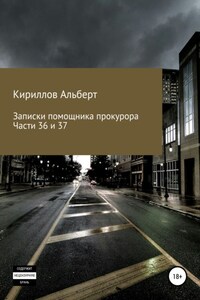When the agent of General Skippon, to whom the estate of Pattenhall by Ripon fell, as part of his reward after the battle of Naseby, went down to take possession, he found a little boy sitting on a heap of stones a few paces from the entrance gate. The old house (which has since been pulled down) lay a quarter of a mile from the road and somewhat in a hollow; but its many casements, blushing and sparkling in the glow of the evening sun, caught the rider's eye, and led him into the comfortable belief that he had reached his destination. He had come from Ripon, however, and the village lies on the farther side of the house from that town; consequently he had seen no one whom he could question, and he hailed the boy's presence with relief, checking his horse, and calling to him to know if this was Pattenhall.
The lad crouching on the stones, and nervously plucking the grass beside him, looked up at the four stern men sitting squarely in their saddles. But he did not answer. He might have been deaf.
"Come!" Agent Hoby said, repeating his question roughly. "You have got a tongue, my lad. Is this old squire Patten's?"
The boy shook his head mutely. He looked about twelve years old.
"Is it farther on?"
"Yes, farther on," the lad muttered, scarcely moving his lips.
"Where?"
Still keeping his eyes, which were large and brown, on his questioner, the boy pointed towards the tower of the church, a quarter of a mile away.
The agent stifled an exclamation, such as in other times would have been an oath. "Umph! I thought we were there!" he muttered. "However, it is but a step. Come up, mare."
The boy watched the four riders plod on along the road until the trees, which were in the full glory of their summer foliage, and almost met across the dusty way, hid them from his eyes. Then he rose, and shaking his fist with passionate vehemence in the direction in which they had gone, turned towards the gateway as if he would go up to the house. Before he had taken three steps, however, he changed his mind, and coming slowly back to the heap of stones, sat down in the same place and posture as before. The movement to retreat and the return were alike characteristic. In frame the boy was altogether childish, being puny and slight, and somewhat stunted; but his small face, browned by wind and sun, expressed both will and sensibility. As he sat waiting for the travellers to return, there was a sparkle, and not of tears only, in his eyes. His mouth took an ugly shape, and his small hand found and clutched one of the stones on which he sat.
Agent Hoby had never been more astonished in his life than when he returned hot and angry and found him still there. It was the last thing he had expected. "You little villain!" he cried, shortening his whip in his hand, and spurring his horse on to the strip of turf, which then, as now, bordered the road-"how dare you tell lies to the Commons' Commissioners?"
There was a slender gap in the wall behind the heap of stones, and the lad fell back into this, still clutching his missile in his hand. "I told no lies!" he said, looking defiantly at the angry man. "You asked me for Squire Patten, and I sent you to him-to the churchyard!"
One of the men behind Hoby chuckled grimly; and Hoby himself, who had ridden with Cromwell at Naseby, and looked the Robber Prince in the eyes, held his hand. "You little whelp!" he said, half in anger and half in admiration. "It is easy to see what brood you come of! I have half a mind to lash your back for you! Be off to your mammy, and bid her whip you! My hand is too heavy."
With that, taking no further notice of the boy, he turned and rode in through the gate. The aspect of the house, the quality of the herbage, the size of the timber, the lack of stock, all claimed at once his agent's eye, and rendered it easy for him to forget the incident. He grumbled at the sagacity of the Roundhead troopers, who had lain a night at Pattenhall before Marston Moor, and swept it as bare as a board. He had a grunt of sympathy to spare for Squire Patten, who, sore wounded in the same fight, had ridden home to die three days later. He gave a thought even to young Patten, who had forfeited the last chance of saving his sequestrated estate by breaking his parole, and again appearing in arms against the Parliament. But of the lad crawling slowly along the path behind him he thought nothing. And the boy, young as he was, felt this and resented it.
When the party presently reached the house, and the few servants who remained came out obsequiously to receive them, the boy felt his loneliness and sudden insignificance still more keenly. He saw stirrups held, and heard terms of honor passing; and he crept away to the hayloft to give vent to the tears he was too proud to shed in public. Safe in this refuge, he flung himself down on the hay and showed himself all child; now sobbing as if his heart was broken, and now clenching his little fists and beating the air in impotent passion.
The solitude to which he was left showed that he had good cause for his grief. No one asked for him, no one sought him, who had lately been the most important person in the place. The loft grew dark, the windows changed to mere patches of grey in the midst of blackness. At any other time, and under any other circumstances, the child would have been afraid to remain there alone. But grief and indignation swallow up fear, and in the darkness he called on his dead father and mother, and felt them nearer than in the day. Young as he was, the child could remember a time when his absence for half an hour would have set the house by the ears, and started a dozen pairs of legs in search of him; when loving voices, silent now forever, would have cried his name through yard and paddock, and a score of servants, whom death and dearth had not yet scattered, would have rushed to gratify his smallest need.














